
Confessions of a Cooking School Virgin
Confessions of a French Cooking School Virgin
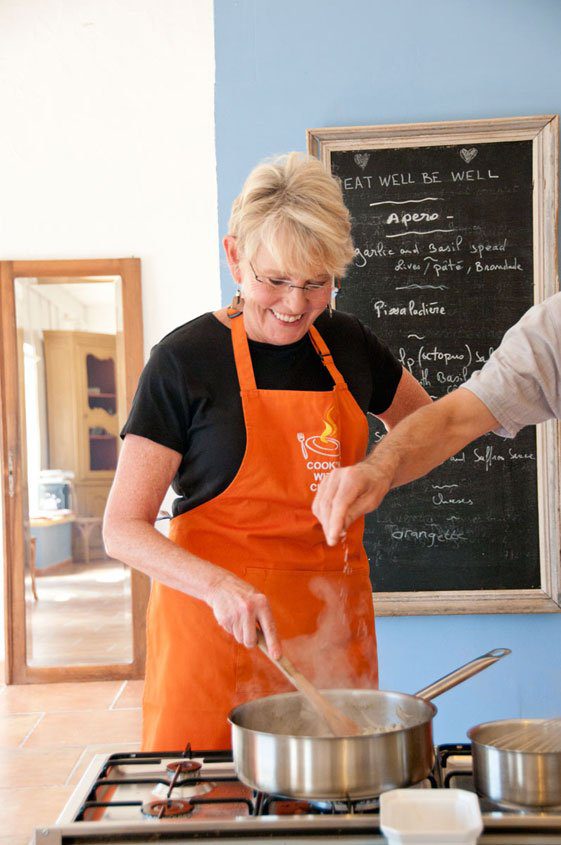
When I was a newlywed I loved to cook. Bon Appétit and Gourmet magazines were my favorite nighttime reading materials. Dinner parties with “also-newlywed” guests were opportunities to try out recipes that had been saved on 3”x5” cards and filed in a tin recipe box.
That all changed when children came into the picture; when I went back to work; and when my waking hours were split between “have to do’s” and “want to do’s.” Usually the “want to do’s” fell by the wayside. That included taking cooking classes.
Now in France, my life is totally different. With plenty of time on my hands, I can choose exactly how I want to spend my time.
I choose to learn how to cook.
How fortunate that the French cooking school, Cook’n with Class Uzès came into my life. The school, specializes in Mediterranean cuisine — the foods people in the south of France love to eat and often serve in their homes. I chose for my first cooking class to attend on “fish day.” Since fish is one of my favorite foods, I wanted to learn how it’s prepared by an expert.
For our fish class some ingredients were more intimidating to me than others. Squid? Octopus? Sea Bass? They’re great to eat, but cook them? Not a clue. I was in the right place.
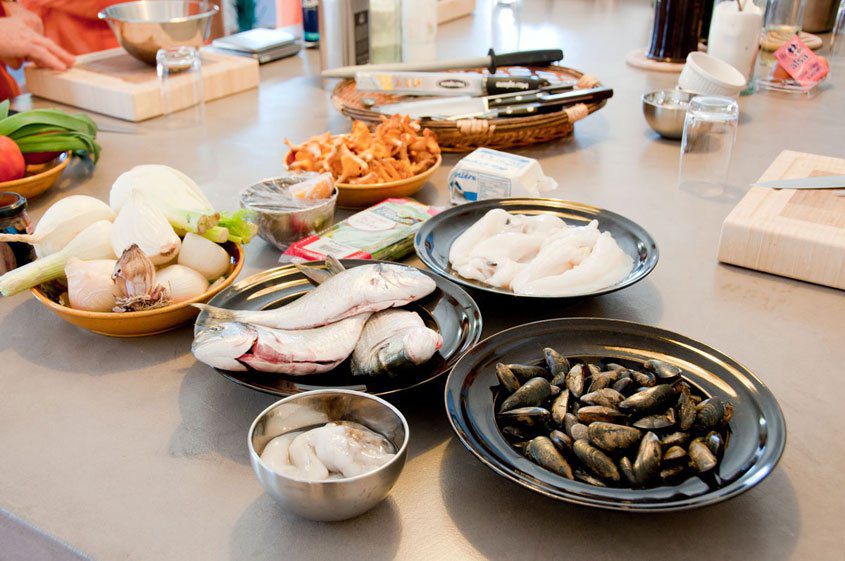
How do you filet a fish?
Chef Eric started out with the basics. While I had be taught how to filet a whole fish properly at the dinner table by Nancy McGee of “Absolutely Southern French”, who writes guest posts for the Barefoot Blogger, I had never worked the uncooked variety. Actually, I learned, the techniques are very similar.
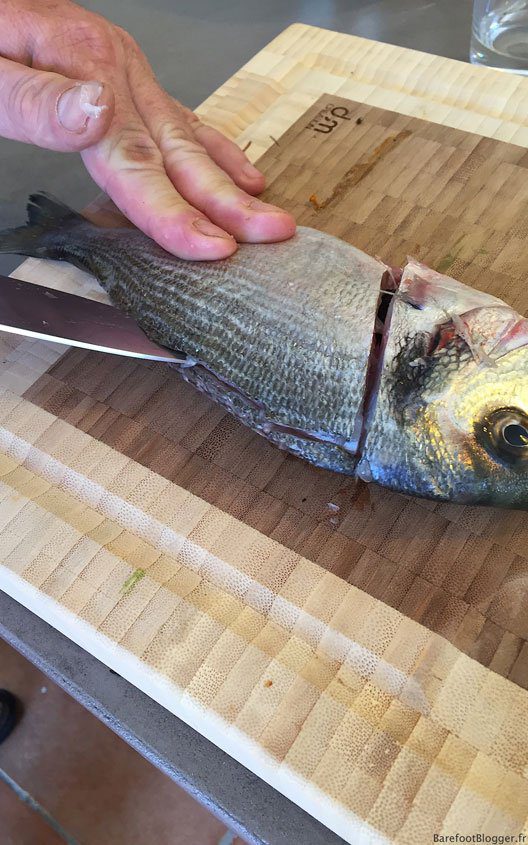
Place your knife along the side just above the skeleton bones
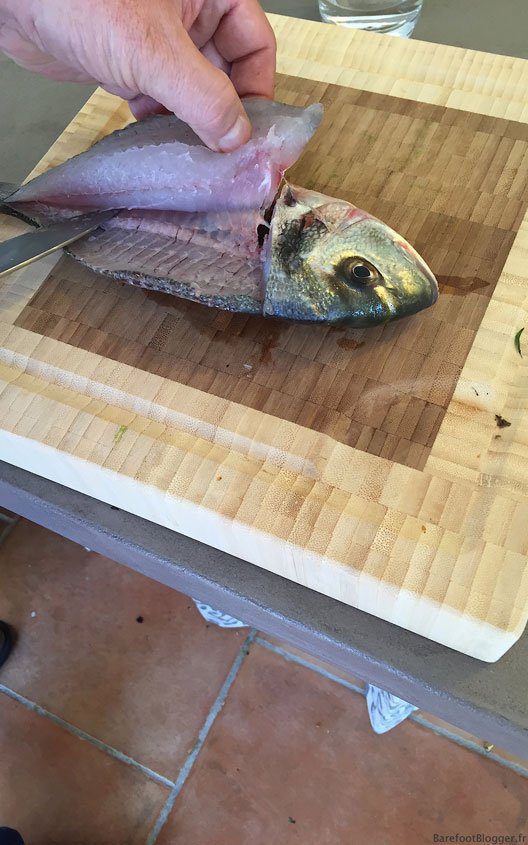
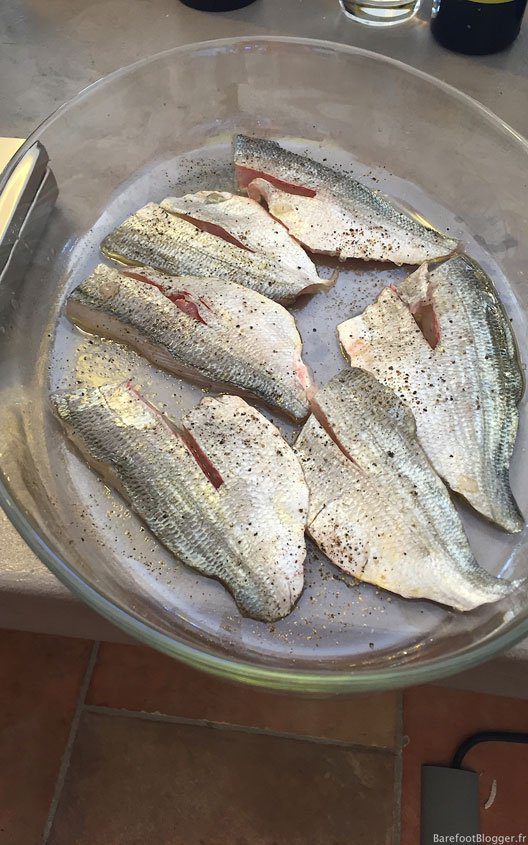
Chanterelle mushrooms
Along with the fresh sea bream, Chanterelle mushrooms, known as “girolles” in France, sat on the counter in all their splendor. I dared not touch them, certain I’d never “properly” cleaned a mushroom before. I was right. Have been running them under water. Not! The chef said to brush off the black spots and small debris with my fingers, followed by a swipe of a paper towel. Some cooks, I was told, use a special brush to clean mushrooms. Who knew?
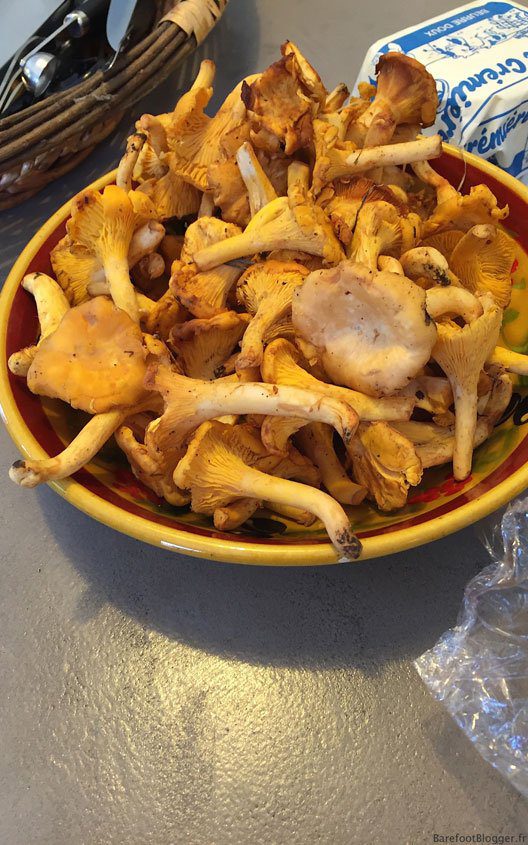
A “seafood salsa”
Next on the menu was an octopus salad that Chef Eric described as “salsa.” The helpful tip for me in preparing the dish was to learn how to get seeds out of a tomato. It’s probably basic to most cooks, but it was new to me. Just squeeze it!
Lunch is served
Our class-prepared déjeuner, or “lunch” was served. As we stood around the chef’s kitchen enjoying an apéro of tapenade, olives and brandade — a fish spread, along with glasses of champagne, Chef Eric told us about French food customs. He talked about his growing up days in the coastal town of Rochelle in the 1960s .
At that time the main family meal was served at mid-day. Everyone would come home from work or school for a two hour break and they would sit down to a four-to-five course meal prepared by his mother. Eric explained that some families preserve the custom today, but times have changed. Many mothers work. The mid-day meal, which is still served at home, is much lighter. Some children come home for lunch, some don’t. Interestingly, the custom of a two -hour break at lunchtime still remains. Businesses close. Cafes are full. The main family meal? It’s “diner” and it starts after 7:30pm.
As we finished our apéro course, we were seated at the table for the entree, or starter, to be served. The main course, sea bream, followed. Just when we thought we would explode, a cheese plate was passed around – then dessert. Yes, there’s always room for dessert.
Now that I’m no longer “French cooking school virgin,”
What did I learn?
- First of all, I know it doesn’t matter how much or how well you cook to learn something from a cooking class. A talented, trained chef has something to teach you, regardless of your background.
- Secondly, there’s nothing like a cooking class in France to excite you about the art of food. The ingredients and techniques you learn about are transferable — regardless of your home base. Also, there are French etiquette “rules” around almost every part of serving, eating and drinking that are intriguing to know.
- Third, simply understanding how to savour food and to relish the flavours — the cooking and eating experience — it’s life-changing. And for me, compared to learning the language, French cooking school is a whole lot more fun.
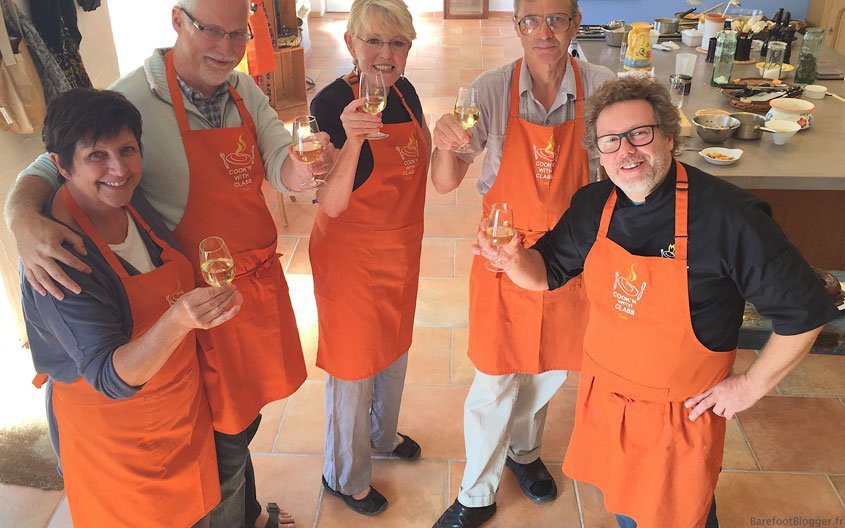
Looking for French cooking classes in Provence, Gard, Nimes, Avignon, Pont du Gard? Book your French cooking class taught by a French chef in English from Cook’n With Class Uzès


Loved this post, Deborah!
Thanks Patricia. You probably recognize the "newlywed gourmet" story. It was the rage. So much ch fun to cook again…the Mediterranean way!
This reminded me of a cooking class I took in Thailand. Loved it!
I hope you'll come this way sometime and see this wonderful place to live. You'd love the food here, too. Thanks, Cecilia!